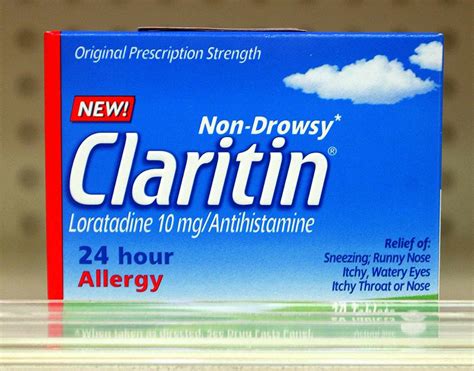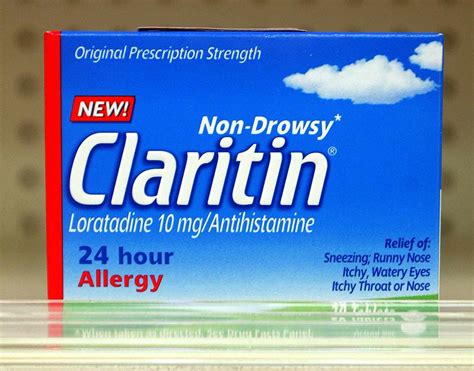Intro
Discover effective Over The Counter Antihistamines for allergy relief, including diphenhydramine and loratadine, to combat itching, sneezing, and congestion with fast-acting, non-drowsy, and 24-hour options.
Over the counter antihistamines have become a staple in many households, providing quick relief from a variety of allergic reactions and symptoms. These medications are widely available, easy to use, and often considered a first line of defense against common allergies. But how do they work, and what are the benefits and potential drawbacks of using over the counter antihistamines?
The importance of understanding over the counter antihistamines cannot be overstated, as they are used by millions of people around the world to treat everything from mild hay fever to more severe allergic reactions. With so many different options available, it can be overwhelming to navigate the various types of antihistamines, their uses, and their potential side effects. In this article, we will delve into the world of over the counter antihistamines, exploring their mechanisms, benefits, and potential risks, as well as providing guidance on how to use them effectively and safely.
As we explore the topic of over the counter antihistamines, it's essential to consider the broader context of allergies and allergic reactions. Allergies are a common and often debilitating condition, affecting people of all ages and backgrounds. From mild symptoms like itching and sneezing to life-threatening reactions like anaphylaxis, allergies can have a significant impact on daily life. Over the counter antihistamines offer a convenient and accessible way to manage these symptoms, but it's crucial to understand how they work and how to use them responsibly.
What Are Over The Counter Antihistamines?

Types Of Over The Counter Antihistamines
There are several types of over the counter antihistamines available, each with its own unique characteristics and uses. Some of the most common types include: * Diphenhydramine (Benadryl): This is one of the most well-known and widely used over the counter antihistamines. It's often used to treat mild to moderate allergic reactions, as well as insomnia and motion sickness. * Loratadine (Claritin): This antihistamine is known for its non-drowsy formula, making it a popular choice for people who need to stay alert and focused throughout the day. * Cetirizine (Zyrtec): This medication is often used to treat more severe allergic reactions, including hives and itching. * Fexofenadine (Allegra): This antihistamine is known for its fast-acting formula, providing quick relief from allergic symptoms.Benefits Of Over The Counter Antihistamines

Potential Risks And Side Effects
While over the counter antihistamines are generally considered safe and effective, there are potential risks and side effects to be aware of. Some of the most common side effects include: * Drowsiness and fatigue * Dry mouth and dry eyes * Headaches and dizziness * Stomach upset and nausea * Interactions with other medications, including prescription drugs and supplementsHow To Use Over The Counter Antihistamines Safely And Effectively

Practical Examples And Statistical Data
To illustrate the effectiveness of over the counter antihistamines, let's consider some practical examples and statistical data. For instance, a study published in the Journal of Allergy and Clinical Immunology found that over the counter antihistamines were effective in reducing symptoms of allergic rhinitis in over 80% of participants. Another study published in the Journal of Clinical Pharmacology found that loratadine (Claritin) was effective in reducing symptoms of insomnia in over 70% of participants.Common Uses For Over The Counter Antihistamines

Less Common Uses For Over The Counter Antihistamines
In addition to their common uses, over the counter antihistamines also have some less common uses, including: * Treating anxiety and stress * Relieving symptoms of attention deficit hyperactivity disorder (ADHD) * Treating symptoms of irritable bowel syndrome (IBS) * Relieving symptoms of menopause, including hot flashes and night sweatsConclusion And Final Thoughts

As we move forward, it's essential to continue exploring the world of over the counter antihistamines, staying up-to-date on the latest research and developments. By doing so, we can ensure that these medications remain a safe and effective option for millions of people around the world.
What are the most common side effects of over the counter antihistamines?
+The most common side effects of over the counter antihistamines include drowsiness, dry mouth, and stomach upset. However, these side effects are typically mild and temporary, and can be minimized by following the recommended dosage and using the medication as directed.
Can I use over the counter antihistamines for extended periods?
+It's generally recommended to use over the counter antihistamines for short-term relief only, as extended use can lead to dependence and withdrawal symptoms. If you need to use these medications for an extended period, it's essential to consult with a healthcare professional to discuss the potential risks and benefits.
Are over the counter antihistamines safe for children and pregnant women?
+Over the counter antihistamines can be safe for children and pregnant women when used as directed. However, it's essential to consult with a healthcare professional before using these medications, especially if you're pregnant or breastfeeding, or if you're giving them to a child.
Can I use over the counter antihistamines with other medications?
+It's generally recommended to avoid using over the counter antihistamines with other medications, especially prescription drugs and supplements, as this can increase the risk of interactions and side effects. If you're taking other medications, it's essential to consult with a healthcare professional before using over the counter antihistamines.
What are the differences between first-generation and second-generation over the counter antihistamines?
+First-generation over the counter antihistamines, such as diphenhydramine (Benadryl), are often sedating and can cause drowsiness, while second-generation antihistamines, such as loratadine (Claritin), are non-drowsy and less likely to cause sedation. Second-generation antihistamines are also often more targeted and effective, with fewer side effects.
We hope this article has provided you with a comprehensive understanding of over the counter antihistamines, their uses, benefits, and potential risks. If you have any further questions or comments, please don't hesitate to reach out. Share this article with friends and family who may be interested in learning more about over the counter antihistamines, and consider subscribing to our newsletter for more informative content on health and wellness.
